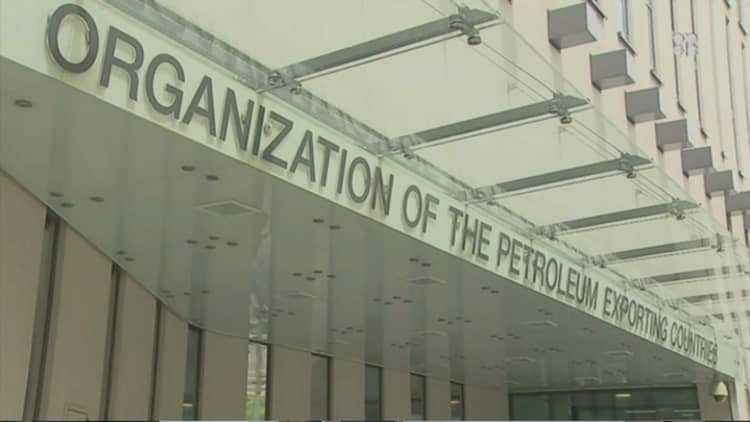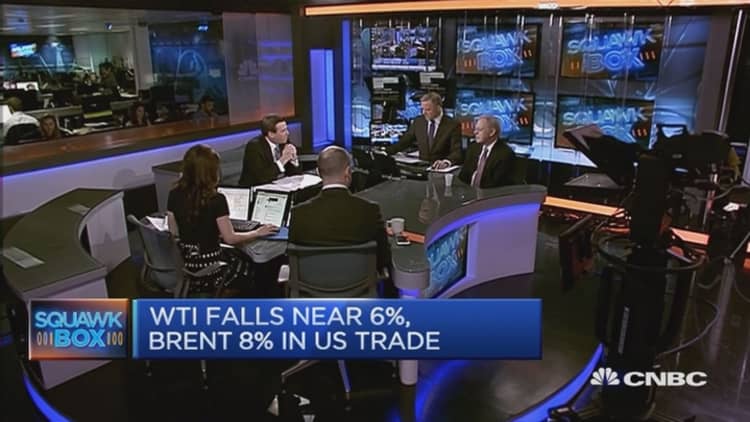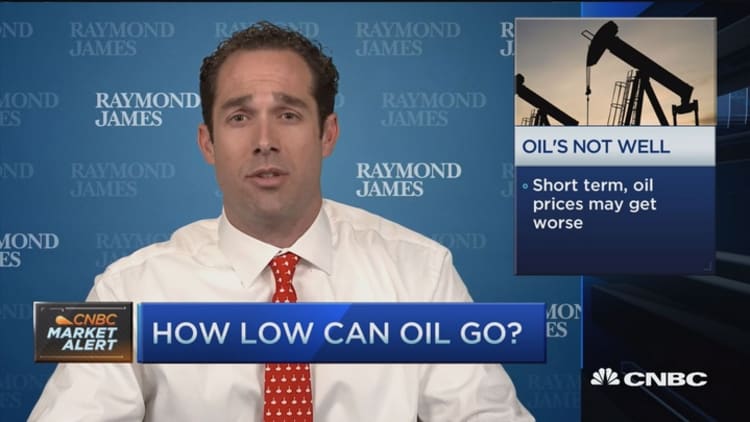


Oil cartel OPEC has cut its forecasts for how much its rival producers will produce in in 2016, while the 12-member group continues to ramp up its own production levels.
According to the latest monthly report from the group, whose de facto leader is Saudi Arabia, non-OPEC oil supply is forecast to decline by 700,000 barrels a day (b/d) in 2016 -- 40,000 b/d less than the cartel's January report.
Non-OPEC producers, such as those in the U.S., have struggled to break even with the lower oil price and have cut costs drastically. OPEC too said that its downward revision to the non-OPEC supply forecast was "mainly due to announced capex cuts by international oil companies, the fall in active drilling rigs in the U.S. and Canada, and a heavy annual decline in older fields."
Oil prices remain very low, with a barrel currently fetching around the $30-mark on the back of a glut and lagging demand. OPEC has refused to cut its own output and thereby support prices, however, even as lower prices hurt government budgets in OPEC member countries in the Middle East and beyond.
Supply and demand
Signaling that the imbalance in supply and demand was not set to be rectified anytime soon, OPEC said on Wednesday that it expected world oil demand to grow by 1.25 mb/d in 2016, "representing a marginal lower adjustment of 10,000 b/d from the previous forecast, to average 94.21 mb/d."
That forecast for oil demand follows a similar prediction from the International Energy Agency (IEA) on Tuesday. It too forecast that global oil demand growth would "ease back significantly" in 2016 from the five-year high of 1.6 million barrels a day (mb/d) in 2015 to 1.2 mb/d in 2016. It said demand growth would be "pulled down by notable slowdowns in Europe, China and the U.S."
At the same time as the global oil demand forecast was lowered, OPEC forecast that its own supply had increased in January, with crude production up 131,000 barrels a day to average 32.33 mb/d, according to secondary sources, above its official output ceiling of 30 mb/d.
Even as low oil prices start to hit home with even Saudi Arabia reporting a record budget deficit in 2015 and spending cuts to cope with lower oil revenues, OPEC has refused to budge on output and has been optimistic on the outlook for global oil demand.
U.S. buoys demand
In fact, OPEC believes that global demand for oil would still be "broadly robust" in 2016 with countries outside the Organisation for Economic Co-operation and Development, including China, India and Brazil, continuing to "contribute the bulk of oil demand growth this year." OPEC reiterated that it was ready to step into the breach to meet that global oil demand.
"In 2016, demand for OPEC crude is expected at 31.6 mb/d, a gain of 1.8 mb/d, higher than last year," OPEC noted, adding more detail on where it expected demand to come from.
"For 2016, oil demand is anticipated to grow by around 1.3 mb/d, below last year's growth but still broadly robust. Demand in the OECD countries is projected to grow by 0.2 mb/d, with the U.S. leading growth, while Asia-Pacific is seen declining and Europe is expected to be broadly flat compared to the previous year."
Rebuffing fears of a slowdown in U.S. growth and how that could put a dampener on oil demand, OPEC said "positive projected growth in the U.S. economy and continued healthy growth in the road transportation sector are seen outweighing downside assumptions for overall U.S. oil demand, mainly linked to fuel substitution and vehicle efficiencies."
Lastly, for Europe, OPEC said that the strong demand growth seen in 2015 was "not expected to be repeated this year."
"Significant economic uncertainties, along with ongoing efficiencies and fuel substitution in the road transportation sector, are expected to weigh on oil consumption in the region. However, this could be offset by expanding demand in major economies – particularly Germany and the U.K. – due to the low oil price environment despite high end-user taxes."



